Self-Love: Houseplants Tips for Beginners
Houseplants for Beginners: What I Wish I'd Known in the Beginning
Writing this post about how houseplants became my favourite self-care activity this year, I realised how much there actually is to learn for beginners to houseplants. It's not too much that you should be put off being new to houseplants, but there's definitely a few things that I wish I had known earlier and that's basically what I'm sharing with you today.
It can be hard and even overwhelming when you're new to something and feel you have a knowledge gap, but the good news with houseplants, I've found, is that everything you need to know is really easy to find out, and often even easier to action.
One of the main reasons I love houseplants is because they are a quick and easy, and yet super rewarding hobby to enjoy. I hope these tips offer you reassurance and guidance on how to grow houseplants in a way that you can appreciate all the benefits of houseplants, and minimal stress or worry, even when things don't go your way (and spoiler alert, they won't always, that's part and parcel of being a beginner houseplant hobbyist!
Disclosure: This post contains affiliate links.
TOP TIP: Find all my favourite and most affordable tools for houseplant care here. None of these are necessary for beginners looking after indoor plants (see below), but they could help
Houseplants Tips for Beginners: What You Need to Know
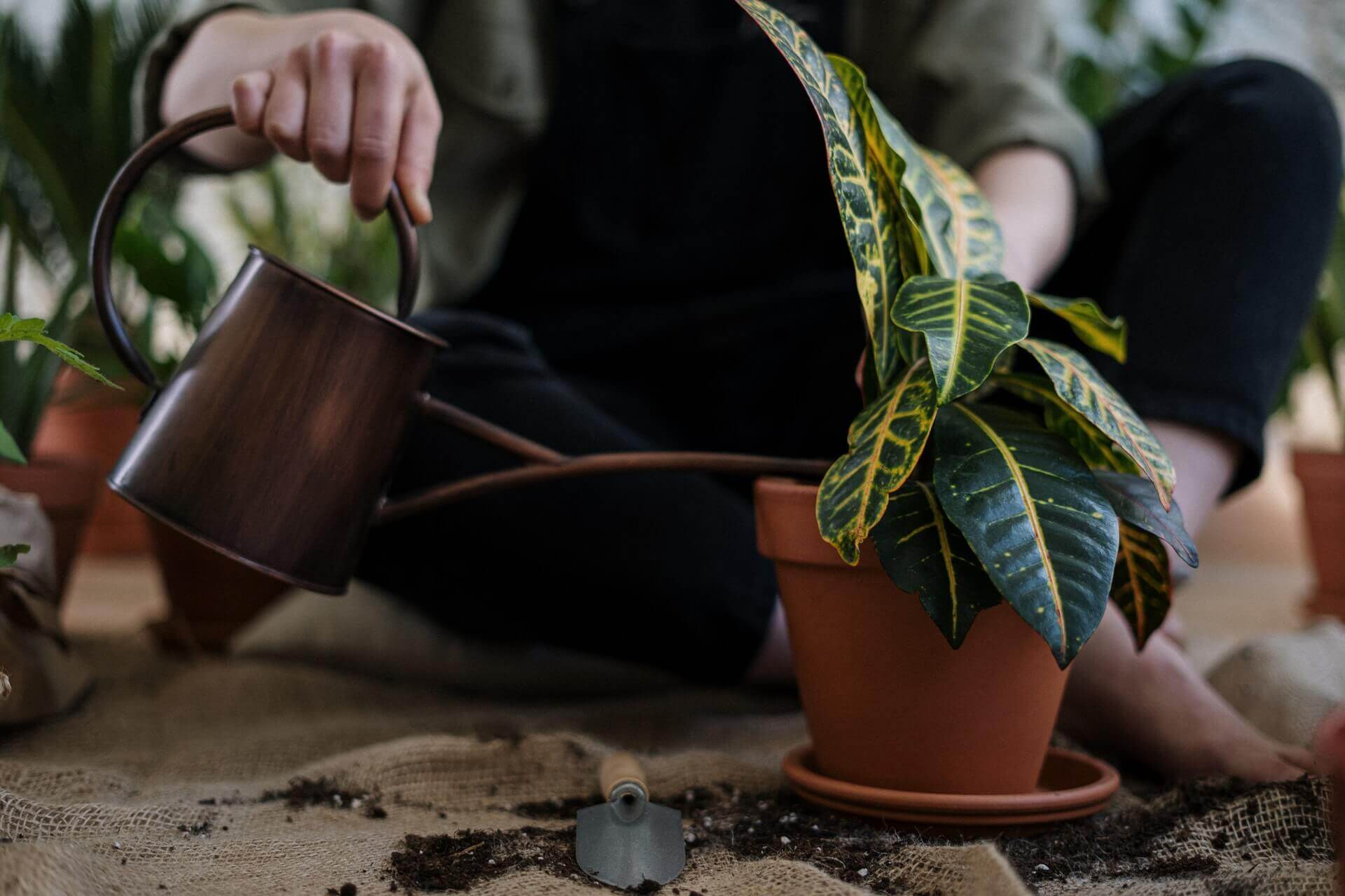
Depending on your space, its light, those you live with, and your budget, you can go as BIG into houseplants as you wish or you can easily just dip your toes into this new hobby with minimal investment (if any!) just to see if houseplants are something you'll enjoy as self-care.
Here are my top tips for beginners who are new to enjoying houseplants. As with my previous post on how good plants are for self-care, the goal here is very much to make caring for plants in your home a soothing and relaxing experience, not stressful or overwhelming.
Everything You Need to Know About Houseplants is Easy to Find Out
The worst thing about being new to houseplants is feeling like there's SO MUCH you don't know, but this is genuinely also the best thing about being a beginner houseplant hobbyist or collector, because the vast majority of what you do need to know is both easy to find out and is easy to action.
You don't need a degree in horticulture. You don't need to know Latin. You don't need to spend a ton of money on the "right" pots or soil. You just need to have a curiosity for learning a bit more, a light source, and water, especially at the beginning of your houseplant journey.
Always Try to Understand Where Your Plant is From
This is my number one tip for plant care. Find out what the plant is, where it's from, where and how it grows, and what kind of climate it's used to. Then you have to try and replicate this as much as possible, which you can find lots of tips on how to do with plant care videos on YouTube or blog posts online.
Find Out What Conditions Your Home Can Offer
Look at your living space and figure out what direction your windows face, what kind of light this will mean for your plants, and look at where you can safely and easily place plants (so that you can also get to them to water and check them fairly regularly).
You should also think about your lifestyle and whether this is accommodating to having a large houseplant collection. Are you often away for long periods of time? Do you work late and have busy mornings, meaning you may miss the best times to water your plants? Do you share a home with children or animals that may knock over your plants or play with them? All of these things should be taken into consideration so you can pick the best plants for your home.
Understand Different Types of Light
Light is everything when it comes to houseplants, EVERYTHING. All plants need light, and so knowing the type of light your home can provide is the first step in understanding what kind of plants will do best, and where, in your space. When thinking about buying houseplants, it's important you know what kind of light constitutes bright direct light, bright indirect light, medium light and low light.
In the Northern hemisphere, bright direct light is the light you get through a south- or west-facing window, which can be harsh in the afternoon. Typically bright indirect light would be at a certain distance away from a south- or west-facing window, or it's up close on a north- or east-facing window (as morning sun tends to be not as harsh). Medium and low-light is typically found further away from windows, or in spaces that are overshadowed for whatever reason. In the Southern hemisphere you need to reverse this!
I have often heard it said that if you can sit in a room and read without the light on, there is enough light in a room to grow a plant - albeit very slowly - so that's been a good judge for me. Once you're comfortable with what kind of light your home has, you can then do research into what kind of plants like that kind of light, because, yes, this does vary quite a lot.
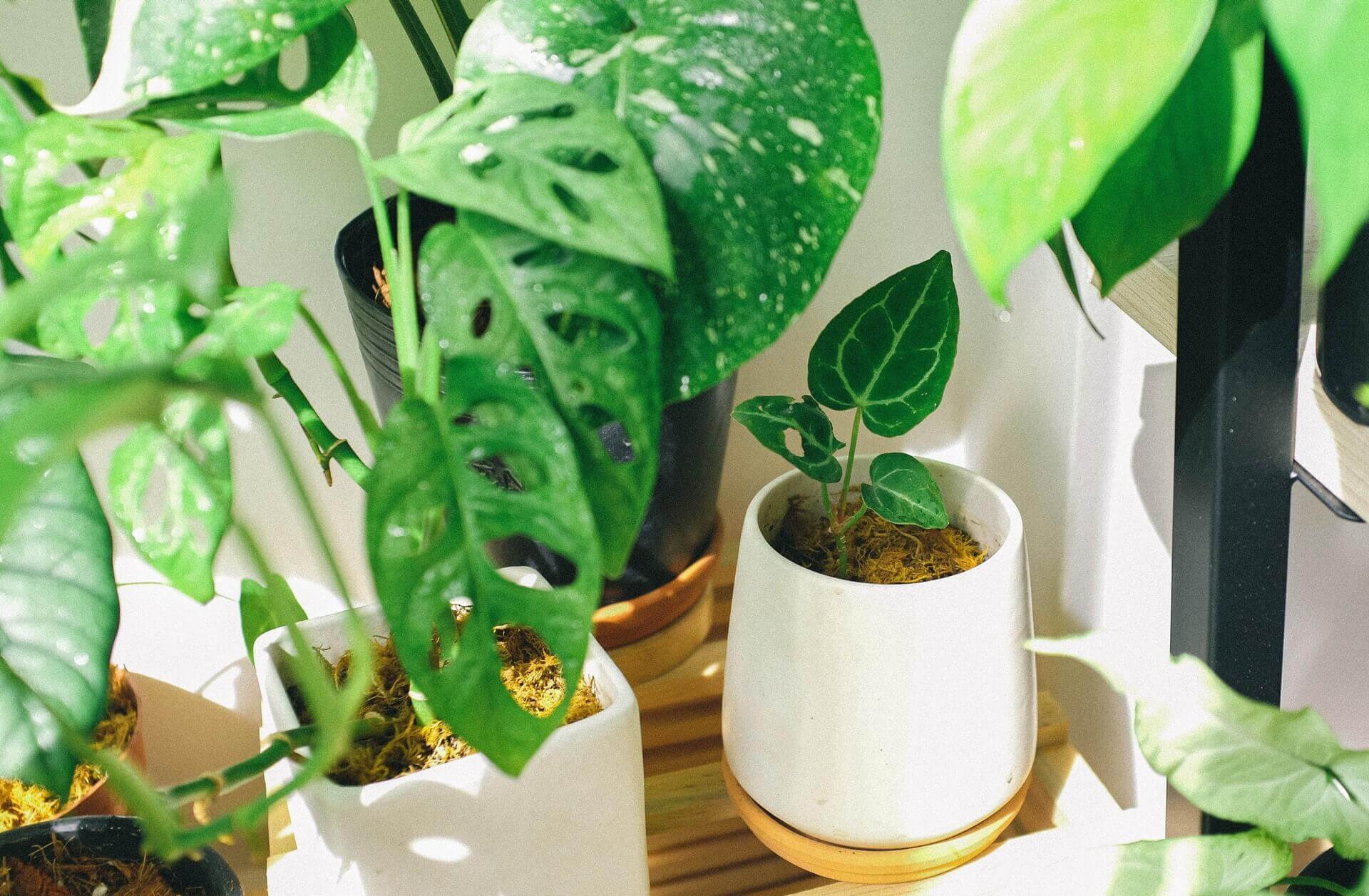
Understand Watering Needs of Plants
Similar to light, each plant has its own watering needs, and unfortunately while many houseplants are the same or similar, not all are the same. Learning how to water plants properly was the biggest turning point in my houseplant journey. It definitely made me feel more capable of caring for plants, and ironically, it actually reduced the amount of time I was spending caring for them - yes, I'm a recovering overwaterer!!!
Humidity is important... sometimes
As well as finding out what the light is like in your home, it's worth also finding out what kind of humidity you have. Most indoor plants come from tropical, humid environments so that is what they will do best in.
The humidity inside homes can really vary depending on what kind of building you live in, where in the world you are, and the season. Even day to day the humidity in my house can fluctuate from 45% - 65%, but on average we have a humidity of 50% which is adequate for most houseplants to not have problems.
Humidity isn't worth getting hung up on, and I don't think you need to buy a humidify as a beginner houseplant enthusiast, but it may be worthwhile just measuring what the humidity is like in some of your rooms just so you can determine which areas are going to be more or less humid for your plants. The easiest way to do this is with a hydrometer, like this one which I have in one or two of my rooms.
Start Small!
Like just one small plant. Or two. Okay, maybe three small ones is doable. But really, don't go and buy ten new houseplants before you have experimented with one or two. A lot of houseplants have similar needs (both in the same category or family, as well as across different categories and species) so just experimenting with a few plants for a month or two will help you know what you can or can't accommodate.
You may need to move plants around to see if they like it better in one spot compared to another so allow time for this. I did this for a few months but then went a bit wild and ended up buying too many than I could actually give a home to so we had to overhaul one of the rooms in our home to gain extra shelf space. It worked brilliantly once it was done, but it was overwhelming when I felt I had bought too many plants and that of course undid some of the mental health benefits of my houseplants!
Be Mindful of the Seasons
If you're reading this at the beginning or middle of autumn or winter, you will have to accept that this is not a great time for houseplants in terms of growth. (It's also true that some go dormant in winter but let's just assume for now that as a beginner you won't be thinking about getting one such plant for now).
Getting into houseplants for the first time in these seasons is still a lovely, happy thing to do but it's very unlikely you will see much growth happen, likewise you may find it harder to know what kind of light your plants really like because they won't be responsive to however much light you provide. Autumn and winter can also be tricky times to figure out your plants' watering needs as nearly all plants need less water during this time. Again this doesn't mean you shouldn't get a plant or hold off on starting a houseplant collection as self-care but it may mean that you will have to be extra patient when waiting to see what the light in your home can do for plants.
Use Store Bought Soil to Begin With
One of the downsides of watching a lot of plant videos on YouTube is that you will see people talk about the type of soil plants like best. This can make you think you need to be making your own soil mixes and getting big bags of lots of different things to combine. If you're short on space and money, this is not a great idea.
Most plants will be in the type soil they need to be in when you buy them, and most garden centres (on- or offline) will sell a good houseplant mix that will work well for most houseplants. Don't worry about making your own soil mixes until you are already comfortable at watering, understanding root conditions and you have some experience re-potting successfully (see below).
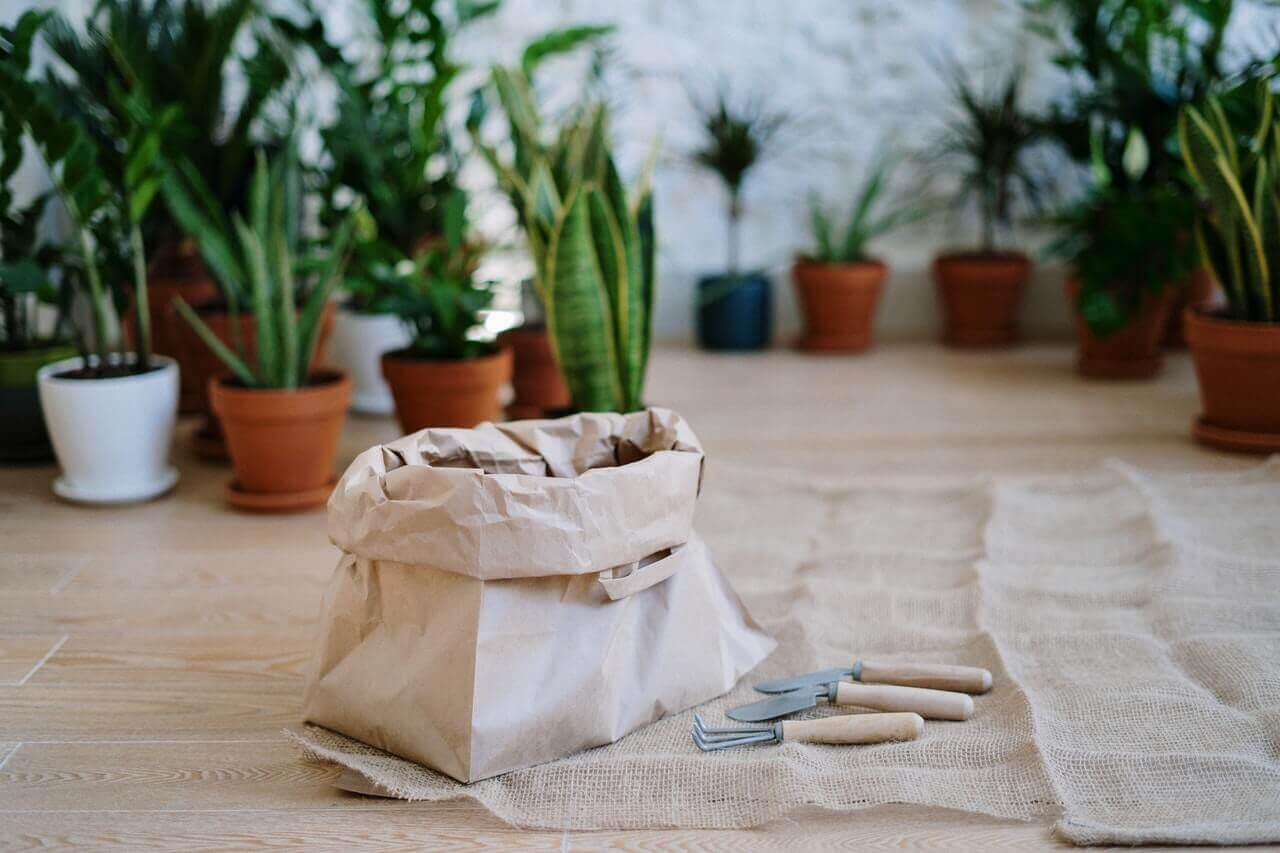
You Don't Need All the Gear or Gadgets
For the same reasons as listed above, you don't need to buy lots of new gear and gadgets to help your plants survive, nay, thrive! To begin with you can just keep them in the pot they came in and use your finger to figure out when to water them.
At the most treat yourself to a nice cover pot so it looks a bit prettier but even this is not necessary. If you are at a stage where you are re-potting or you want a more sophisticated way to measure moisture or humidity, I recommend some of my tried and tested (and very affordable) houseplant bits and bobs here.
Do a Bit of Research Before Re-Potting Plants
Re-potting without proper knowledge of roots, soil needs and the best time to re-pot a plant has been my biggest mistake in my previous plant care journey. Again, YouTube and the Internet has all the information I needed, I just didn't look it up. Now I take time to find out about a plant's needs before I re-pot or change soil, and my plants are all the better for it.
Know that Some Plants are Poisonous
Yes, really, some houseplants are toxic. I was quite slow to appreciate this fully and it's something I'm not proud to admit considering I have two young children. Typically, an animal or child would have to ingest A LOT of a plant to cause themselves real injury but there are some plants that can be very toxic to humans and animals so please do research and know when you have a plant that is more toxic you need to keep out of reach of others and also wash your hands thoroughly after caring for it.
Understand Fertiliser/Plant Food... a bit.
One thing I was slow to learn was that fertiliser/plant food is often already in store-bought soil mixes and is slow-releasing over up to six months! So you don't need to actually give fertiliser or plant food (they're usually one and the same) to plants that you re-pot in store bought houseplant store (or cactus/succulent soil).
However, if you're not changing the soil of your plant anytime soon you can go ahead and give some plant food to your houseplants based on recommended amounts on the bottle.
Experiment with Propagation... if you want!
Propagation is when you create new plants from leaf or stem cuttings from a plant. Each individual type of plant has its own propagation methods and some have many different ways to try. I started very slowly with propagation and indeed, nearly all processes take months until you see a new plant out of just a small cutting, but I've been amazed how joyful and rewarding it has felt when you do see new roots start to grow, or a new leaf grow out of a stem you cut.
You don't need to propagate, ever, but it is a really fun way to try something new, grow your plant collection or maybe create a whole new plant for a friend. Needless to say, propagation has been really effective at teaching me patience during a time when I desperately needed it!
Respect the Circle of Life, at all Stages.
Plants die. This is okay.
Even if it was your neglect or lack of knowledge that may have led to the demise of a plant, it's still okay. If your mental health is vulnerable you need to prioritise that. I have killed a handful or two of plants over the last five months as my houseplant hobby has exploded, but I consider that pretty good considering how many new ones have entered my life.
Knowledge is key and it will always be your best defense against plants dying BUT sometimes other things that you don't yet know to spot or treat can happen. Again, embrace the over-arching experience, and try not to stress too much over the moments when things don't go your way, because that's really part and parcel of being a beginner with houseplants.
Have fun!
This is definitely the most important thing you need to remember should you be embarking on houseplants as a new hobby. It should be fun and bring you joy, and this is best achieved when you don't stretch yourself (or your plants!) by getting too many, expecting more from your environment (that you can't control), and picking plants that need more time or care than you can provide.
I think that's all the tips I have for now, but if more houseplant tips for beginners come to mind, I will add them in. And if you'd like to save or share this post, here are some images you can pin:
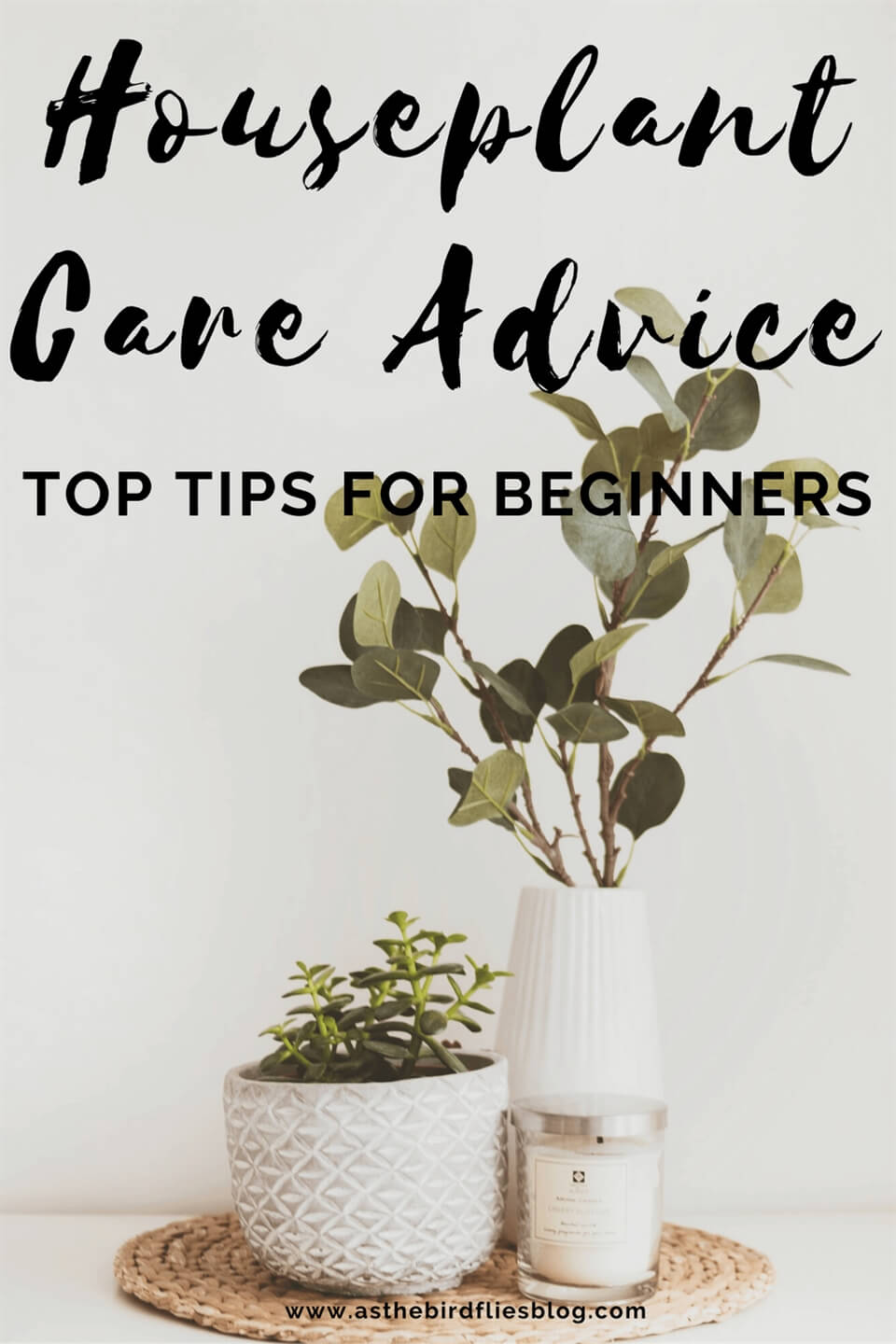
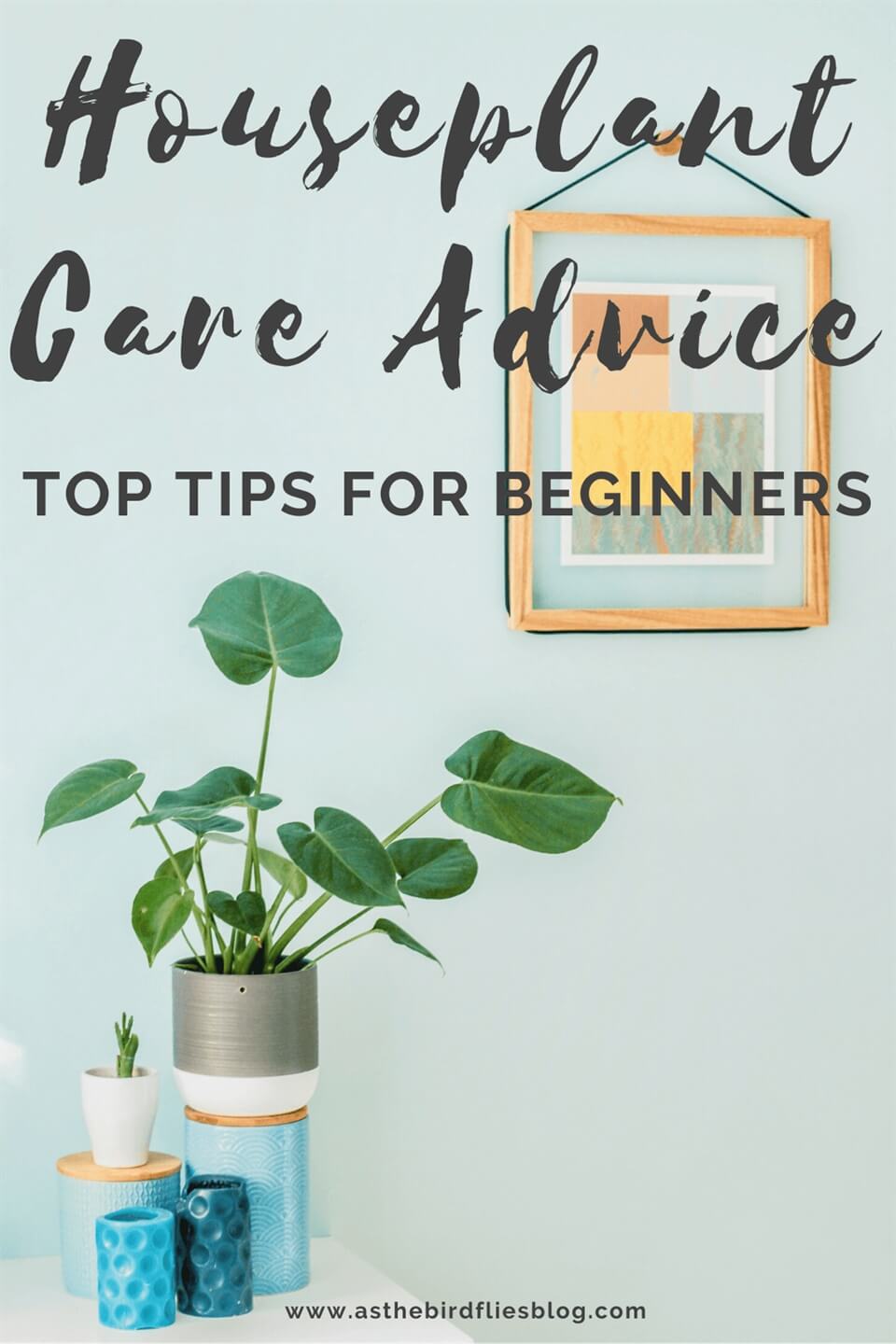
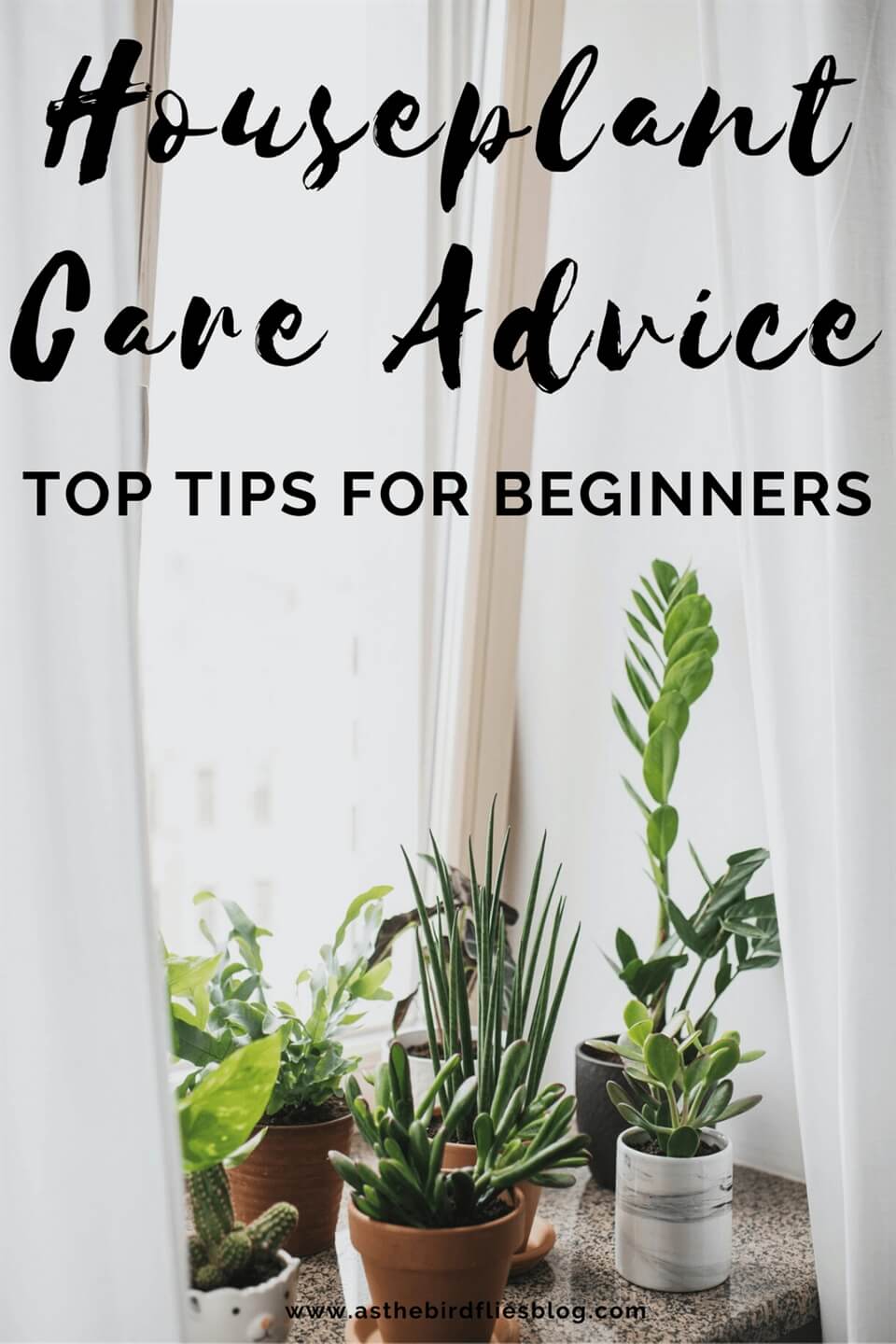

Frances M. Thompson
Find Frankie on Facebook, Twitter, Instagram, Pinterest, and Google+.
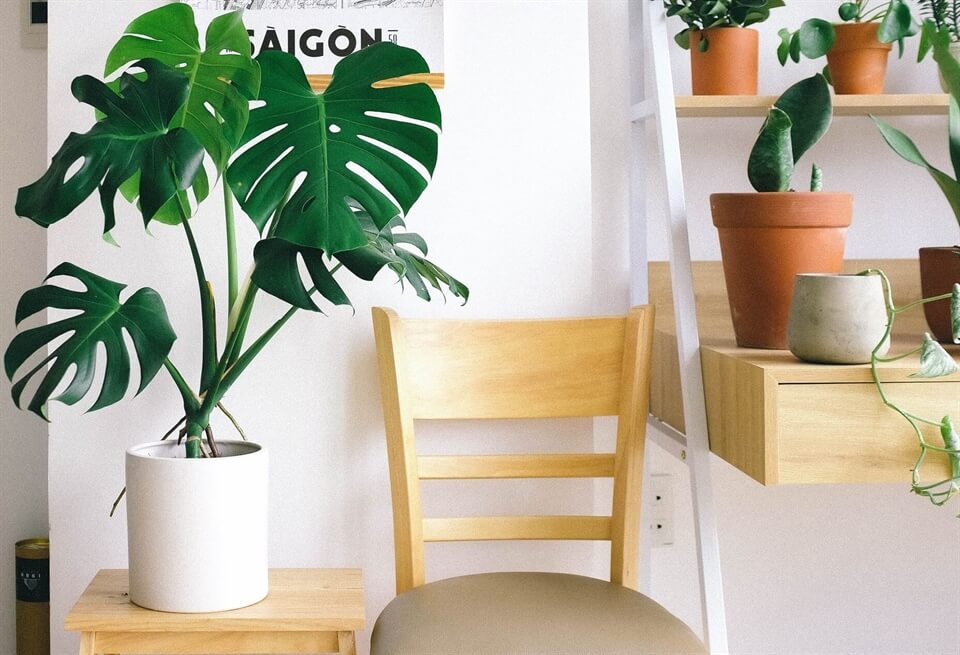
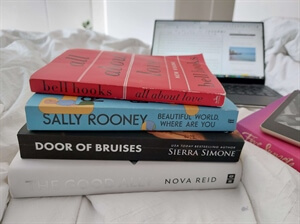 Book Reviews: Mid-Year Book Report 2022
Book Reviews: Mid-Year Book Report 2022 My Thoughts: The Life-Enhancing Joy of Romance Novels
My Thoughts: The Life-Enhancing Joy of Romance Novels My Thoughts: 21 Things That Helped Me in 2021
My Thoughts: 21 Things That Helped Me in 2021 Self-Love: 31 Positive Affirmations for December
Self-Love: 31 Positive Affirmations for December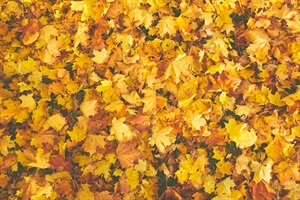 Self-Love: 30 Positive Affirmations for November
Self-Love: 30 Positive Affirmations for November About the Blog & Frankie
About the Blog & Frankie Welcome to My Amsterdam Travel Blog!
Welcome to My Amsterdam Travel Blog! Welcome to My Luxury Family Travel Blog!
Welcome to My Luxury Family Travel Blog! Welcome to My Writing Blog!
Welcome to My Writing Blog! Lover Mother Other: Poems - Out Now!
Lover Mother Other: Poems - Out Now! I Write Stories That Move You
I Write Stories That Move You Order WriteNOW Cards - Affirmation Cards for Writers
Order WriteNOW Cards - Affirmation Cards for Writers Work With Me
Work With Me